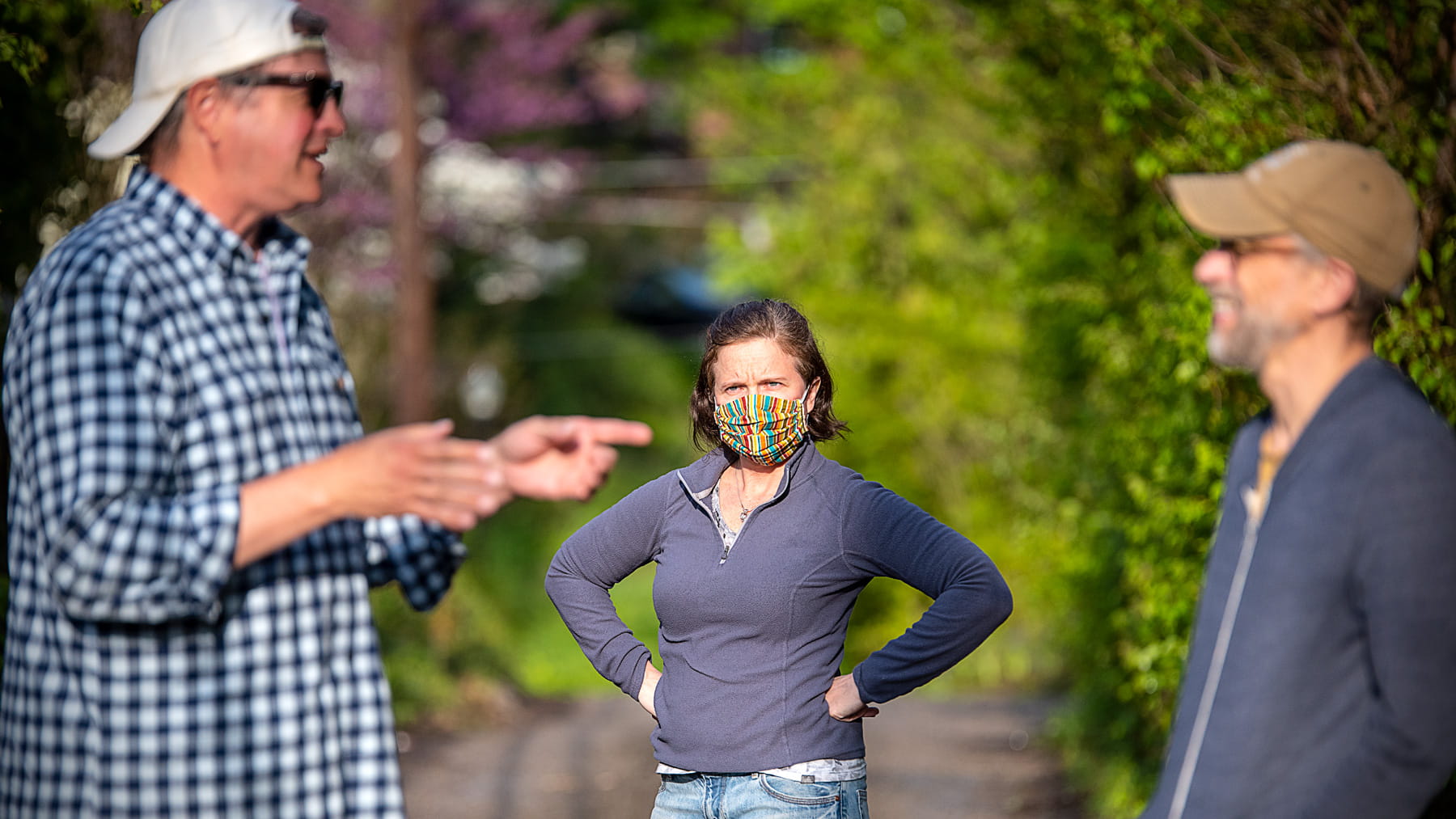Why social distancing violations bug you and what to do

Editor’s note: As what we know about COVID-19 evolves, so could the information contained in this story. Find our most recent COVID-19 blog posts here, and learn the latest in COVID-19 prevention at the Centers for Disease Control and Prevention.
While en route to the grocery, you pass a park packed with people sunbathing and not wearing masks. Annoyed they’re not six feet apart, you drive on. Then when you’re in the grocery with your mask on, a couple pulls their cart up right next to yours and they’re not wearing masks. By this point, you’re ready to snap. Do you say something to them about proper social distancing during COVID-19?
How can you relieve your tension?
Living during the COVID-19 outbreak can be stressful. That’s because any circumstance that brings change and uncertainty can make coping difficult. This outbreak is especially challenging because many of our coping mechanisms aren’t available—going to the gym, spending time with family and friends or treating ourselves to a meal at a restaurant.
We’re increasingly anxious, bored, unmotivated, restless, angry and depressed. A lack of usual structure throughout the day can make it difficult to concentrate and lead to forgetfulness. Plus there’re physical consequences—stress can cause jaw clenching, muscle tension, high blood pressure, stomach problems and headaches.
Think before you react
It’s important to remember we don’t have control over others’ behavior. It’s OK to have an emotional reaction to seeing someone casually ignoring or actively violating recommendations aimed at protecting the health of the public. But at the end of the day, we can’t force anyone else to change. Once we let go of that illusion of control over others, it frees up our energy to focus on the things that we do have some power over; namely, our own choices.
Here are a couple of things you can do to cope with COVID-19 stress:
- Movement can help you process your emotions and calm any physical agitation. That can be walking, biking, playing golf or doing yoga—anything that gets you moving.
- Remember to breathe—take some deep breaths and focus on the positive.
- “Script ahead” your response in case somebody asks what you think about all the COVID-19 precautions in place. This will help keep you calm because you’ve already thought it through.
Avoid the blame/shame game
It’s best to consider the big picture before engaging in behavior that blames or shames somebody. Most people don’t enjoy being told what to do and being embarrassed or humiliated is likely to make them defensive. When people feel attacked, they’re more likely to react in defiance and double down on their original belief or behavior.
It’s also important to recognize there may be a legitimate reason that someone isn’t wearing a mask or keeping their distance from someone else. Assuming that they just don’t care may be folly on your part.
Lead by example and with compassion
Adding one more “don’t” to the already lengthy list of restrictions we’re facing today just adds to the grief and anxiety we’re feeling. Offering a positive example of what to do can help. Societal change begins on the individual level. Personally demonstrating healthy behavior and sharing your inspiration for doing so is much more likely to influence others than blaming or shaming ever could.
A simple act of kindness can go a long way to help when someone else is struggling. Listen to what the other person is upset about and offer validation and support. You don’t have to fix it; sometimes just being a safe person for someone to vent to is all that’s required.
Arianna Galligher is a licensed independent social worker supervisor and the associate director of the STAR Trauma Recovery Center at The Ohio State University Wexner Medical Center.




